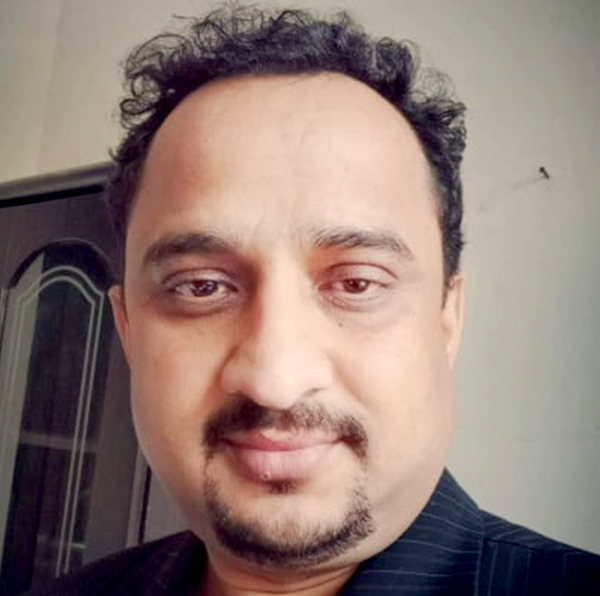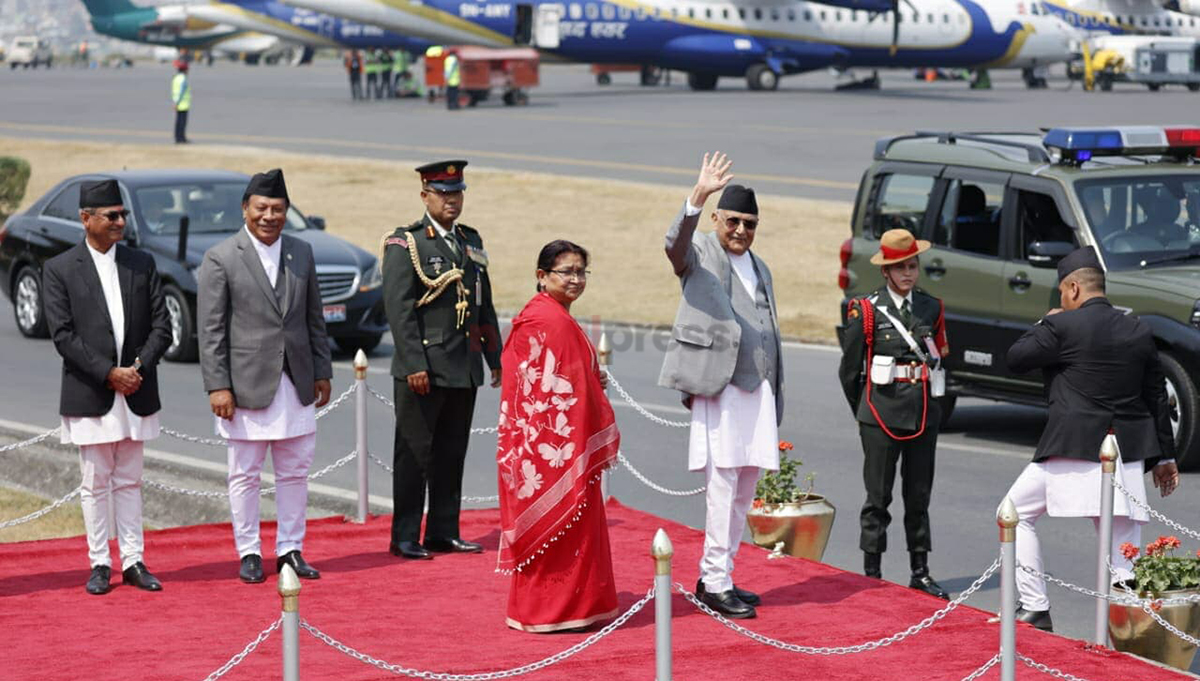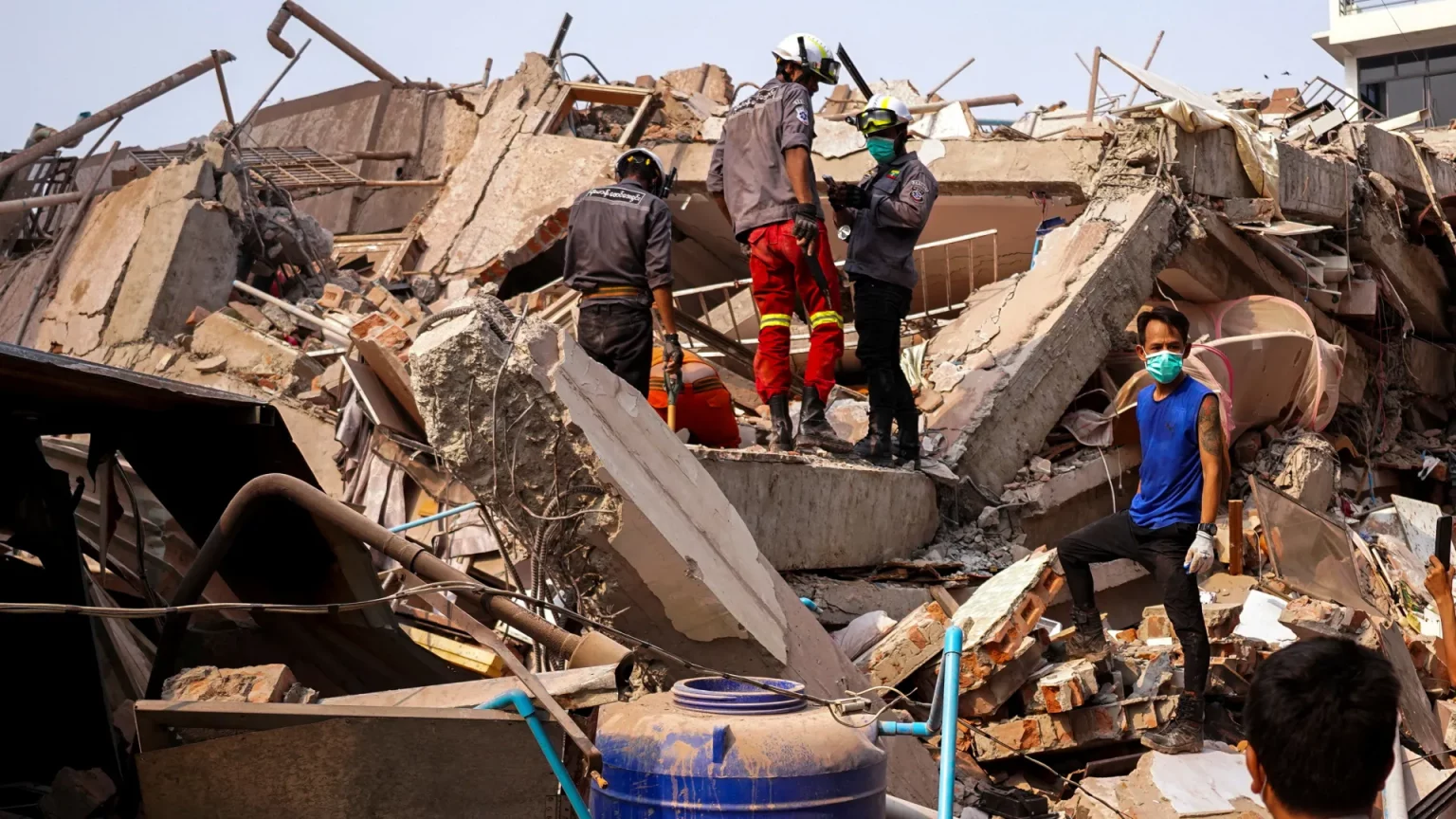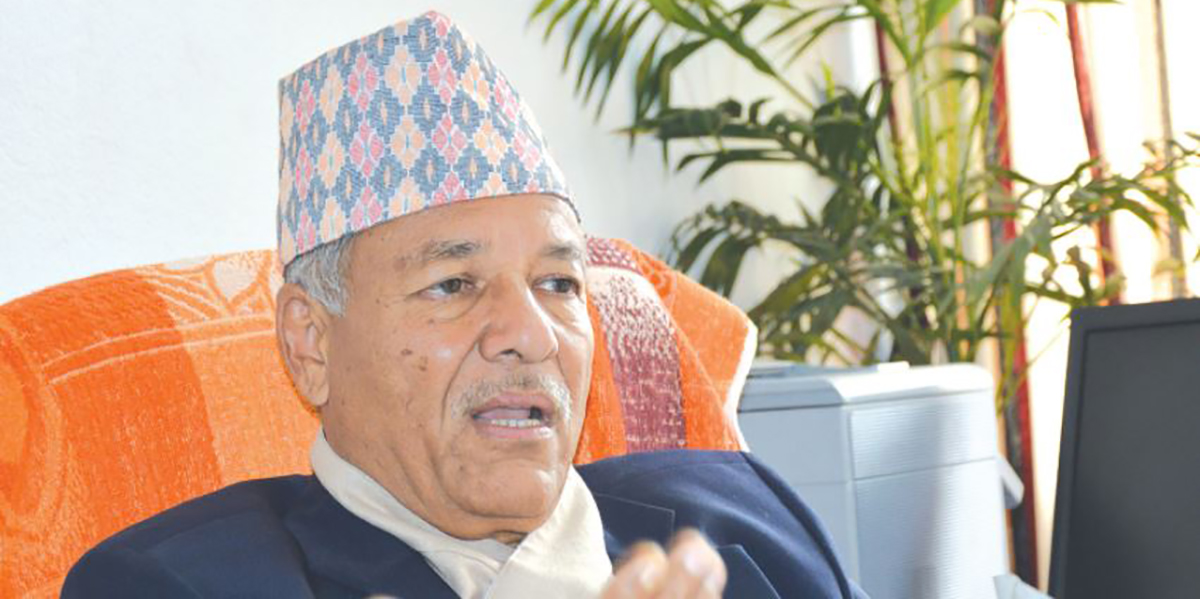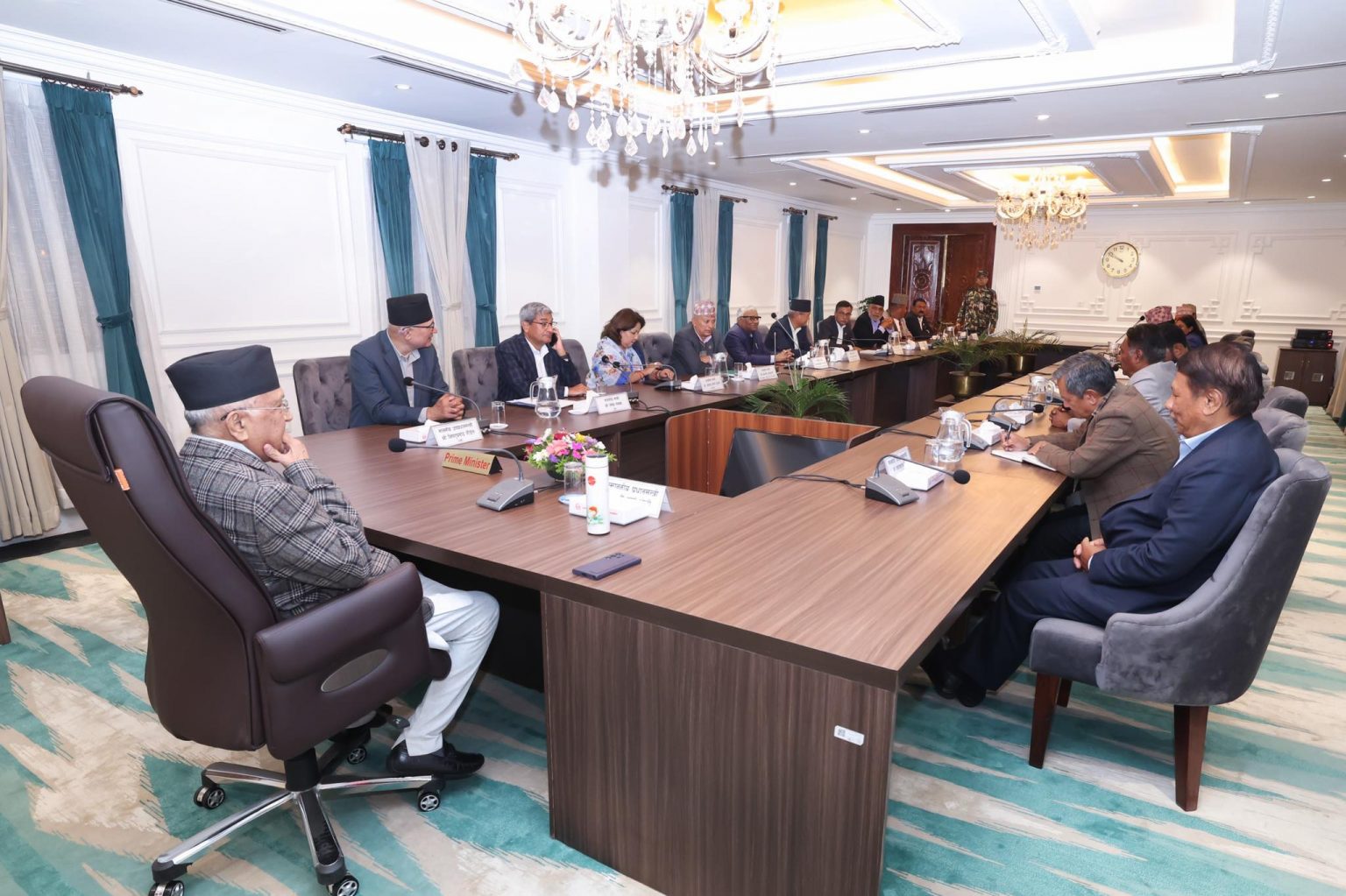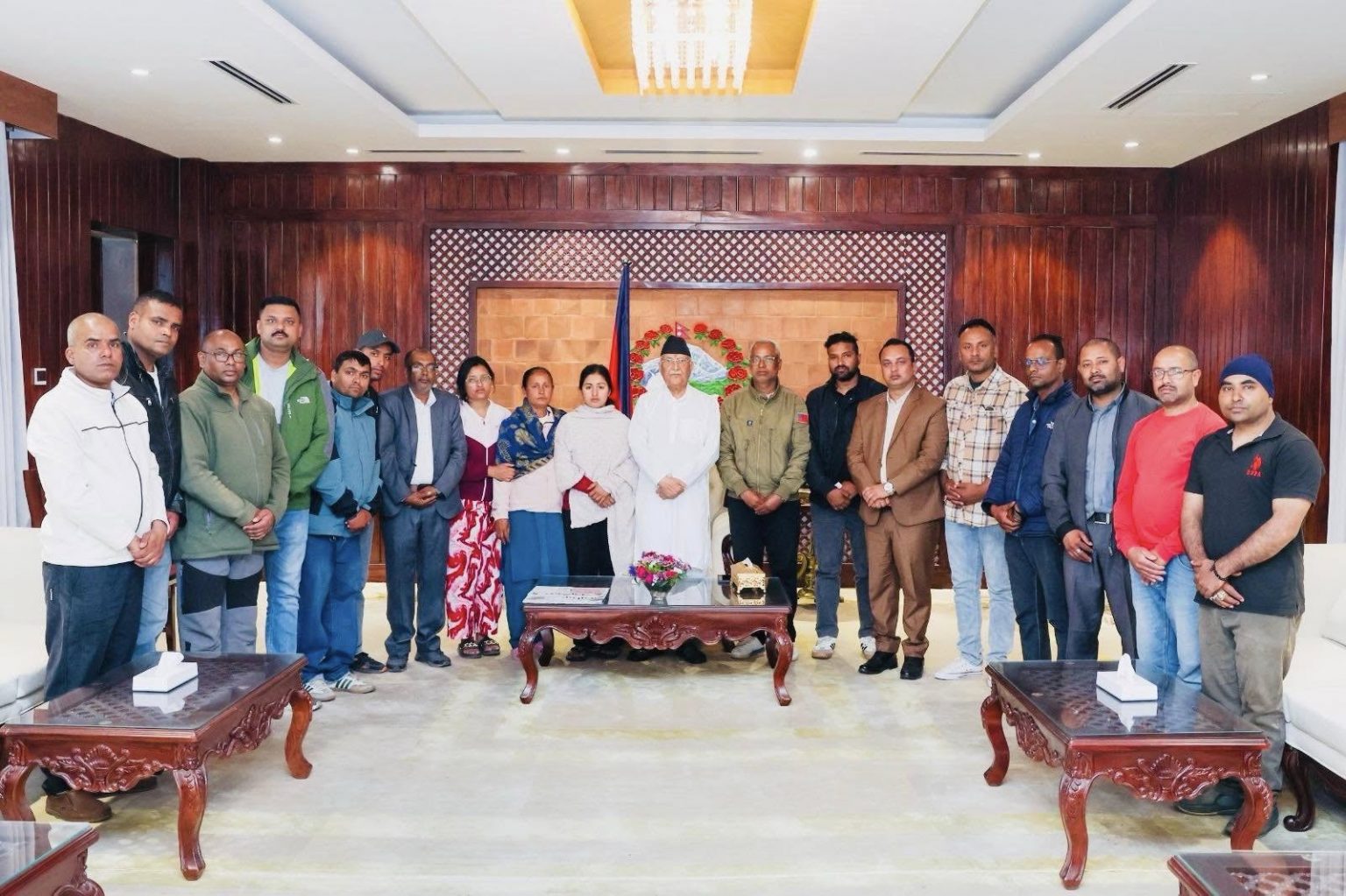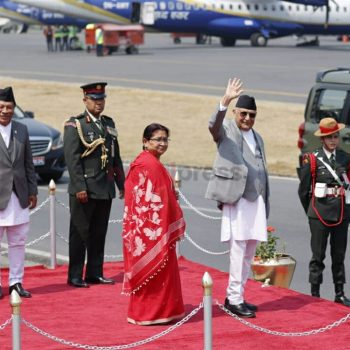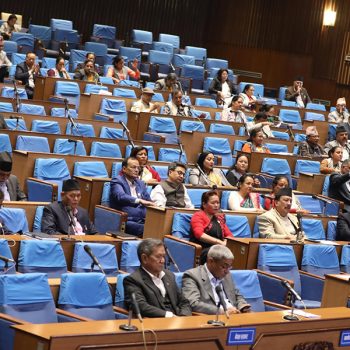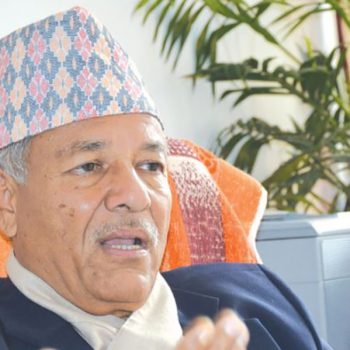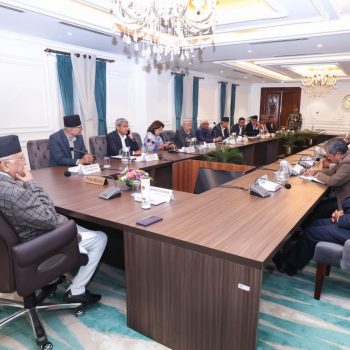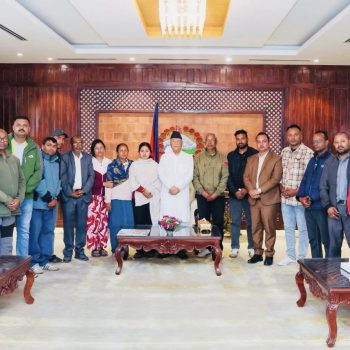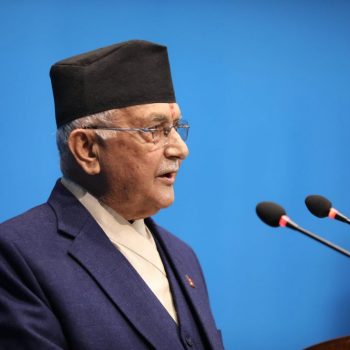Twist upon twist: Possible side effects of Supreme Court’s decision
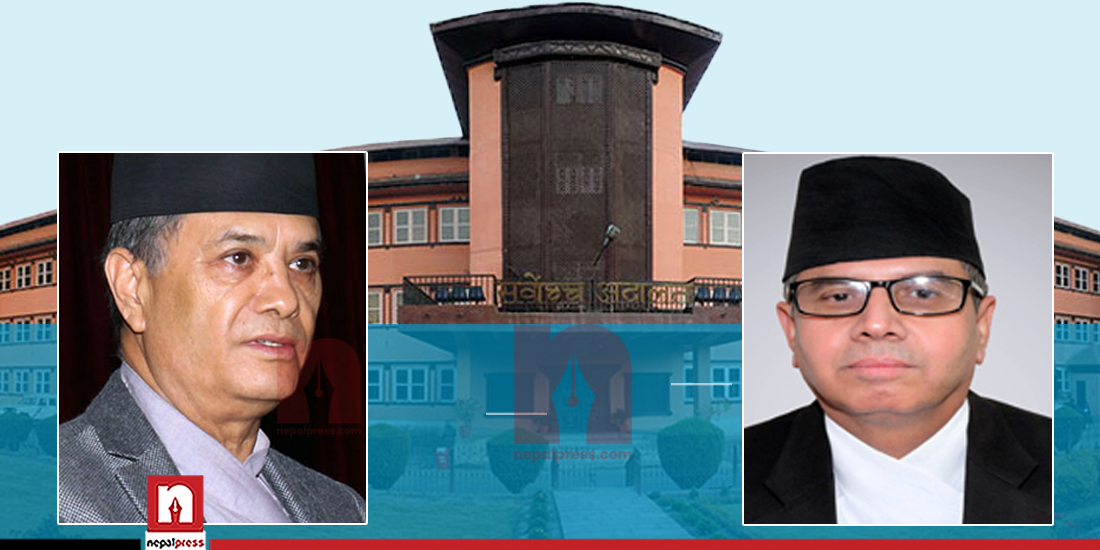
KATHMANDU: Lately, the Supreme Court has been dominating Nepal’s state affairs in an unprecedented manner. Supreme Court orders are bringing one twist after another in national politics.
Yesterday, the Supreme Court issued another landmark order reversing the two-time reshuffle done by Prime Minister KP Sharma Oli in his cabinet. With this, 21 ministers have been forced to leave their posts. Oli now has a small five-member cabinet.
Debates continue over whether the Supreme Court’s order is right or wrong. Supporters of the government are disappointed while the opposition and their proponents seem to be celebrating. In any case, a situation where the Supreme Court directs Nepali politics is not ideal in itself.
This order of the Supreme Court has reduced the size of the Council of Ministers. A small cabinet of five has been formed. However, the order has multifaceted political implications.
21 ministries on the shoulders of five people
In the absence of a parliament, the Oli-led government has been described by the Supreme Court as “temporary”. The Prime Minister will not have the power to expand or add to the current cabinet until another government is formed as per the Supreme Court’s order.
Now there are two possible political courses to form the next government. First is that as announced by the incumbent government, a new government will be formed after the election. Second is that the Supreme Court will overturn the decision to dissolve the House of Representatives and the opposition coalition will have to prove its majority and form an alternative government.
Until then, the five-member cabinet will have to run the country. At present, the government has 21 ministries. Even if other ministers are not allowed to be added, the Prime Minister can change the division of labor of the ministers. This is confirmed by the court’s acceptance of Finance Minister Bishnu Poudel as the Deputy Prime Minister.
Now Oli will have to divide the responsibilities of 21 ministries with 5 people, including himself, or he can keep the responsibilities of the current ministers as they are and keep all the vacant ministries under his control.
In any case, the functioning of the government will not be smooth. When there is a lack of political leadership in the ministry, the secretaries will dominate. The absence of ‘dedicated’ ministers in ministries such as foreign affairs, information and communications, and health can affect the functioning of the government.
Inability of the government to take sustainable decisions
Questions have been raised on the government, which has become temporary by default after declaring elections, on its ability to take long-term and sustainable decisions. The Supreme Court’s order has further strengthened this.
Oli had been carrying out every action and decision with confidence, like with the government of absolute majority. He ignored all-round pressure that a caretaker government cannot bring in a full budget. In the absence of parliament, he brought a large budget through an ordinance. The government has been carrying out activities from political appointments to promotions and regular transfers.
Today’s order of the Supreme Court is aimed only at the expansion of the Council of Ministers. The order does not address other government actions. However, some jurists have interpreted the order to mean that the caretaker government cannot make far-reaching and sustainable decisions. Therefore, moral and constitutional pressure has been added to the government not to make political appointments, transfers and other important decisions in the coming days.
Oli-Mahantha’s bond has been severed, will PSP split?
The party was on the verge of splitting as soon as a faction of the party joined the government. At present, both Mahantha Thakur and Upendra Yadav are fighting for authority in the Election Commission by taking action against each other.
There is no ideological reason for the People’s Socialist Party to move towards division. As one faction within the party approached Oli, the other faction became agitated. Eventually, at the risk of splitting the party, the Mahantha group joined the Oli government. However, having to leave within less than a month of joining the government, the faction has been hit hard.
The Supreme Court’s order can also be a starting point for reconciliation. At present, there was a bipolar situation in the anti-Upendra-Baburam Oli alliance and in the Mahantha-Rajendra Oli government. As there is no ideological dispute, the Mahantha faction may emerge from Oli’s shadows and create an atmosphere of unity again.
Additional pressure on Oli for unification
The Supreme Court has been giving one blow after another to Prime Minister KP Oli lately. This order is another setback for him. He brought PSP to the government by giving it high importance, and now has to bid them goodbye with a heavy heart.
In a sense, leaving the PSP government does not seem to be a direct loss to Oli. He will be able to run the UML’s sole government with a small cabinet. However, the alliance with PSP being broken means Oli becoming politically weak. He now has to focus on finding unity within the UML.
In the UML, Madhav Nepal is happy with the decision of the Supreme Court. The faction seems to be celebrating that the Supreme Court has slapped Oli again. They have a preliminary understanding that this aspect will increase their bargaining power with Oli in the upcoming days. They are also hoping that Oli, who is being slapped on the face continuously, will now make great sacrifices for party unity.
A sole UML government again
After the parliamentary elections in 2074 BS, the then UML Chairman KP Oli became the Prime Minister with the support of the UCPN (M). It was a coalition government of the UML and the Maoists. The two parties then merged to form the CPN single-majority government.
But after the Supreme Court ruled to break the unity of the CPN, the UML and the UCPN (M) resurfaced. And the Oli government again turned into a two-party coalition government. After the UCPN (M) withdrew its support to the government, it remained a single UML government. Again, by bringing PSP into the government, Oli gave the government a coalition form. Now that all the PSP ministers have left, the UML has a sole government. It remains to be seen whether PSP’s Mahantha Thakur faction will support this government from outside.
Oli’s power seems to have waned as the PSP has been forced to leave. However, having only UML ministers will make it easier for him to run the government.
20 ministers leave without even a month’s salary
Those who are involved in politics have a big goal – to become a minister. That is why those who were in the post of minister even in the caretaker government were happy. Sitting in a government, the collapse of which was probable but uncertain, they were announcing large plans.
However, they has been chased away without getting even a month’s salary as minister. This is a sympathetic view for those who understand the essence of politics. This may not be a big deal for Rajendra Mahato, Sharad Singh Bhandari and others who have been ministers many times in the past. But for the first time, those sitting in the minister’s chair for the first time had to leave less than a month later.
Among the ministers forced to leave, 10 were appointed on 4th June. They remained in the post of minister for 19 days. Similarly, the UML ministers who were appointed on 10th June were released within 13 days.


